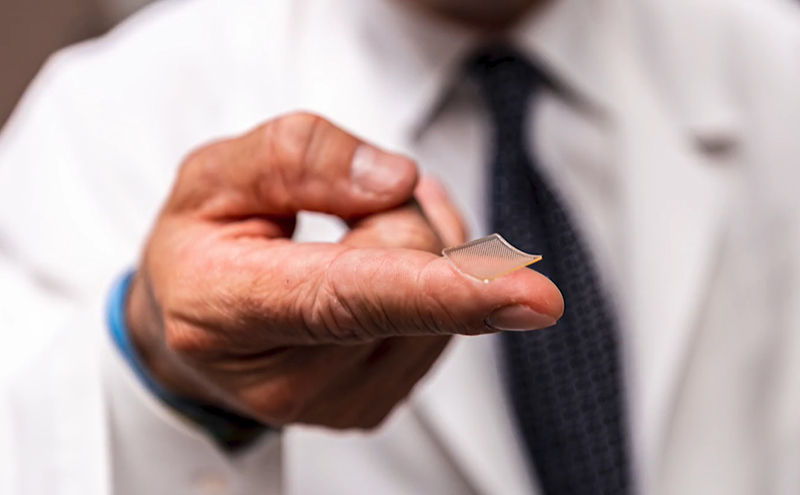So far, the coronavirus pandemic has killed 70,172 people worldwide. Amid 9,620 deaths in the United States, President Donald Trump has warned “there will be a lot of death” as the U.S. faces its “toughest week” yet in its fight against this pandemic.
Read more Vuzix Blade and M400 Augmented Reality Glasses to Fight the Coronavirus Pandemic
When researchers around the world are racing to develop potential treatments or vaccines against this dreaded respiratory disease, a team of scientists at the University of Pittsburgh School of Medicine now say they’ve developed a Covid-19 vaccine that showed promise in a study in mice.
The vaccine, given through a small patch dotted with 400 microneedles, is made of sugar mixed with a coronavirus protein. The sugar in the vaccine melts when the microneedles penetrate the skin. It then releases the full protein dose in 10 minutes or less. This approach takes advantage of the skin’s ability to set off a powerful immune response, reports The New York Times.
“For this vaccine, we’re going to deliver the antigen with a novel technology that’s referred to as a dissolvable microneedle array,” said Louis Falo, MD, PhD Professor and Chair of Dermatology at the University of Pittsburgh School of Medicine and UPMC. “What the microneedle array is able to do is to deliver the vaccine antigen directly into those areas of the skin that are made to make an immune response. And so, it results in a very potent vaccine.”
The researchers named the vaccine “PittCoVacc”. They said they were able to develop it after working on other coronaviruses that cause Severe Acute Respiratory Syndrome (SARS) and Middle East Respiratory Syndrome (MERS).
“These two viruses, which are closely related to SARS-CoV-2 (the new coronavirus causing the COVID-19 pandemic), teach us that a particular protein, called a spike protein, is important for inducing immunity against the virus,” said Andrea Gambotto, an associate professor at Pittsburgh.
“We knew exactly where to fight this new virus.”
How the Microneedle Arrays Work
The microneedle arrays work almost like a Band-Aid. They are simply applied to the skin topically, pressed into place very shortly, and then taken off and thrown away. Then the antigen is delivered, said Dr. Falo.
The Study
When tested in mice, the prototype vaccine generated what the researchers described as “a surge of antibodies” against the new coronavirus within two weeks.
Read more Biofourmis’ AI-Powered Tech Being Used in Remote Monitoring of COVID-19 Patients in Hong Kong
However, they cautioned it is too early to say whether and for how long the immune response against COVID-19 lasts, as the animals have not been tracked for very long as yet. But they said when they compared the tests in mice with their MERS experimental vaccine, it was found to produce enough antibodies to neutralize the virus for at least a year.
The team hope to start clinical trials of the PittCoVacc in people in the next few months.
The study was published in the journal EBioMedicine.













